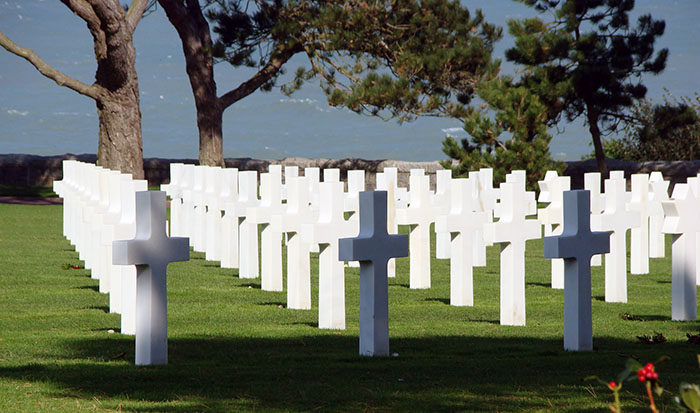In September 1939 war broke out again in Europe; war had been going on in Asia for some years already. Within two years, these two conflicts had turned into a genuinely world war, with fighting occurring in just about every part of the globe. In this war, however, what was surprising and unforeseen, was that the casualties were not only restricted to military personnel as had been generally the case in World War I. In this conflict, civilians died on a huge scale. In fact, although there is much disagreement over actual numbers, there were probably not many more military casualties in World War Two (18 million dead, maybe 30 million total casualties) than had occurred in the First World War (32 million casualties, 8 million dead). But of the sixty (or probably a lot more) million who lost their lives during the Second World War, the overwhelming number were civilians (at least 30 million civilian dead and perhaps many more). Numbers this large often become so meaningless, difficult to comprehend. I have a list of websites with casualty figures on my Russian and World War II remarks page.
One of the more amazing events of the war was the speed, and totality, of the French collapse in the face of the German offensive in June 1940. In many respects French weaponry was not inferior to German arms, nor did the Germans greatly outnumber French forces in terms of personnel or equipment, but for the most part the French army just failed. About the only real resistance was put up by some armored troops under the command of General Charles de Gaulle (1890-1970). This collapse proved a mighty blow to French prestige, and after the war the issue resurfaced again in the context of collaboration with the Nazi regime. Since France was conquered, many Frenchmen acquiesced in the German occupation. After the war the French government (to re-assert it's previously discredited authority) sought scapegoats to explain the poor performance of the French military. The result was a series of spectacular "collaborationist" trials, including that of France's World War I hero, Marshal Phillipe Pétain (1856-1951).
![]()
Some recommended online lectures and websites
- Wikibooks: World History/Ancient Civilizations (The Rise of Dictatorship and Totalitarianism and Causes and Course of the Second World War)
- At Boundless World History, see the sections on the Interwar Period and World War II (well done).
- World War II in Photos: A Retrospective in 20 parts (In Focus by Alan Taylor of The Atlantic); this is the Before the War part.
- BBC's World War Two site has a variety of primary sources available dealing with the Great War. There is also a site devoted to genocide under the Nazis.
- The Fallen of World War II (Casualty statistics)
- Good place to start is with Wikipedia
- World War II (history.com)
- World War II (historynet.com)
- The National World War II Museum
- Experiencing War: Stories from the Veteran History Project (Library of Congress)
- National Archives: World War Two Records
- For extra credit please suggest to your instructor a relevant website for this unit of the course. Send the title of the site, the URL and a brief explanation why you find the information interesting and applicable to the material being studied in this unit.
